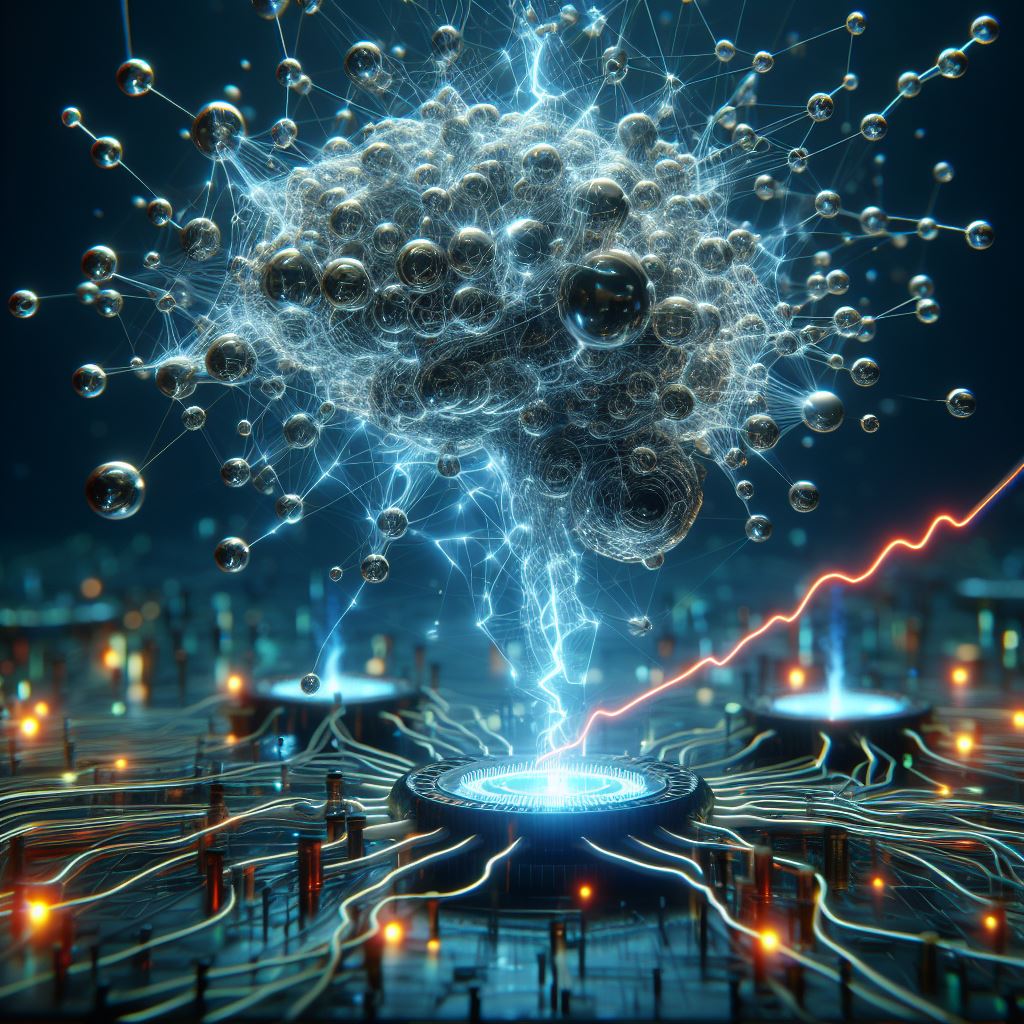AI Neural networks are a powerful tool for artificial intelligence, as they can learn from data and perform complex tasks, such as image recognition, natural language processing, and self-driving cars. However, neural networks also have some limitations, such as high energy consumption, low speed, and vulnerability to noise and errors. Colloidal neural network
To overcome these limitations, physicists have now created a new type of neural network that works not with electricity, but with so-called active colloidal particles. Colloids are tiny particles that are suspended in a fluid, such as milk, ink, or blood. Active colloids are colloids that can move by themselves, such as bacteria, algae, or artificial microswimmers.
The physicists, from the University of Konstanz in Germany, the University of Cambridge in the UK, and the University of Bordeaux in France, published their findings in the journal Nature Communications. They showed that active colloids can form a neural network that can perform calculations digitally, without any external power source or wiring.
The idea is based on the fact that active colloids can interact with each other through hydrodynamic forces, creating patterns and structures that resemble the connections and activations of neurons in a neural network. By controlling the shape, size, and activity of the colloids, the physicists can encode information and logic into the system, and manipulate the output.
The advantages of the colloidal neural network are that it is fast, robust, and energy-efficient, as it does not rely on any external power source or wiring. It is also adaptable and versatile, as it can be tuned and reconfigured by changing the properties of the colloids or the fluid. Moreover, it is biocompatible and environmentally friendly, as it can be made of natural or synthetic materials that are harmless or degradable.
The physicists demonstrated that their colloidal neural network can perform basic arithmetic operations, such as addition, subtraction, multiplication, and division, as well as logical operations, such as AND, OR, and XOR. They also showed that their system can be scaled up to perform more complex tasks, such as image processing and pattern recognition. Physicists have created a new type of neural network that works with active colloidal particles, not electricity. Learn more about this fast, robust, and energy-efficient AI system that can perform calculations digitally.
The advantages of the colloidal neural network are that it is fast, robust, and energy-efficient, as it does not rely on any external power source or wiring. It is also adaptable and versatile, as it can be tuned and reconfigured by changing the properties of the colloids or the fluid. Moreover, it is biocompatible and environmentally friendly, as it can be made of natural or synthetic materials that are harmless or degradable.
The physicists hope that their work will inspire new applications and possibilities for artificial intelligence, especially in the fields of biomedicine, nanotechnology, and soft robotics. They also hope that their work will shed light on the fundamental physics of active matter and complex systems, and reveal new insights into the emergence of intelligence and computation in nature. Colloidal neural network
The advantages of the colloidal neural network are that it is fast, robust, and energy-efficient, as it does not rely on any external power source or wiring. It is also adaptable and versatile, as it can be tuned and reconfigured by changing the properties of the colloids or the fluid. Moreover, it is biocompatible and environmentally friendly, as it can be made of natural or synthetic materials that are harmless or degradable.
The physicists demonstrated that their colloidal neural network can perform basic arithmetic operations, such as addition, subtraction, multiplication, and division, as well as logical operations, such as AND, OR, and XOR. They also showed that their system can be scaled up to perform more complex tasks, such as image processing and pattern recognition. Physicists have created a new type of neural network that works with active colloidal particles, not electricity. Learn more about this fast, robust, and energy-efficient AI system that can perform calculations digitally.

